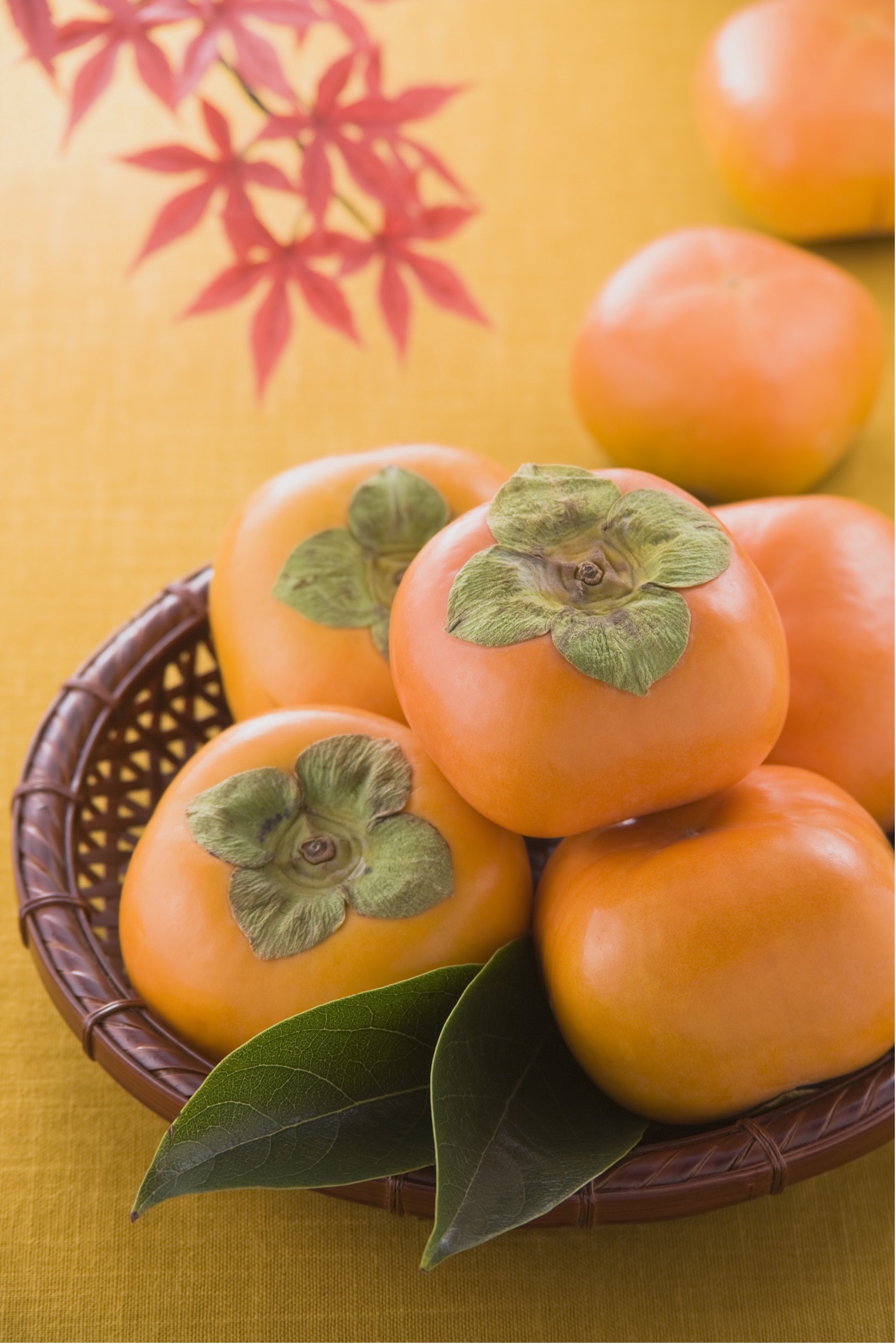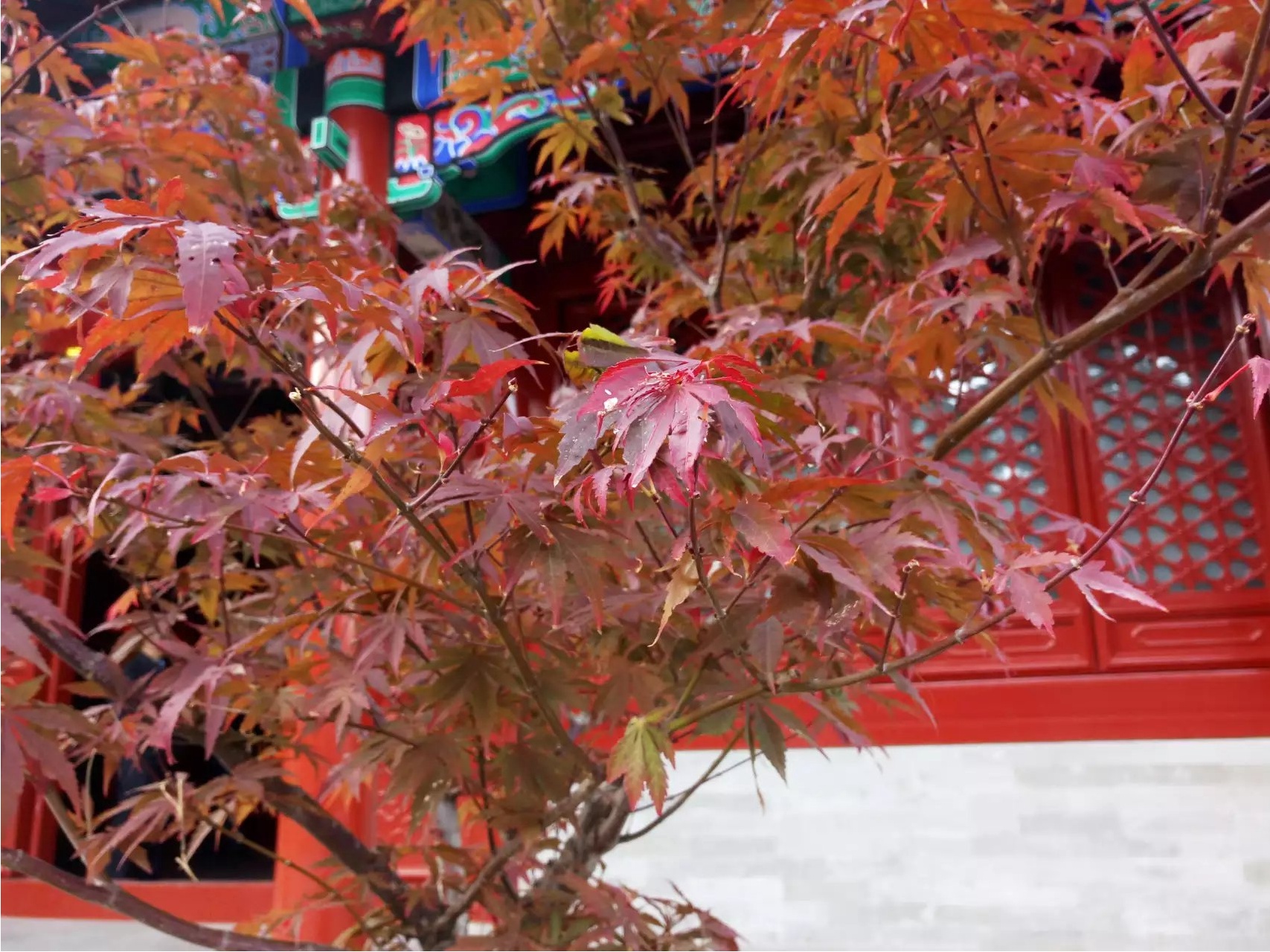Shuangjiang (literal means Frost’s Descent, the 18th term of the 24 traditional Chinese solar terms, which is a supplementary system in the Chinese calendar to guide farm work) is the last solar term in autumn and the transition period from autumn to winter, during which the first frost appears, the temperature gets much colder than before, and winter is drawing near.
Frost’s Descent

“Eating persimmons in Shuangjiang keeps the runny nose away”, says a proverb, as persimmons ripen around Shuangjiang period with thin skin, fleshy and juicy flavor, and high nutritional value, it has become a popular custom in China.
Enjoying Chrysanthemums
Shuangjiang is exactly when chrysanthemums blossom and many places in China would hold fairs and drink wine to enjoy the beauty of chrysanthemums and show their respect and love for this flower.

Photo by Li Tingting
A vivid depiction of red leaves in Shuangjiang period goes, “the twilit mountainside is ablaze with crimson maples more vivid than spring flowers”. After the frost descent, maple trees and Huanghu trees began to turn red and yellow, glowing mountains and plains as spectacular as flame.
When autumn comes, the air in wooded mountains is fresh, with less dust and pollutants floating. There is arguably never a more ideal time to climb mountains than when the frost falls. It can relax lungs and mood by gazing into the distance on hillcrest.
As the farmer’s proverb “Eat sorghum in Chushu (Limit of Heat) and grain in Bailu (White Dew), Shuangjiang is the time to pull radishes” indicates, Shandong people like to eat radishes in Shuangjiang. This proverb also implies that due to the temperature varies greatly from morning to evening when Shuangjiang begins, and radishes will suffer from frozen skin if they are not harvested in time, which will impair the quality and crops.
On the day of Shuangjiang, folks in southern Fujian and Taiwan will eat nutritious food, which is what we called “Tieqiubiao” (fleshing out in autumn). Every part of the duck is valuable, let alone its delicious taste, such as the famous local signature dishes made by ducks like Beijing Roast Duck, Nanjing Salted Duck, and Hangzhou Old Duck, as well as special snacks like duck blood soup with vermicelli, duck blood in chili sauce, and spicy duck neck.
In most places in China, there is a custom of eating beef on days of Shuangjiang period. For example, locals in Yulin, Guangxi, are used to eating fried rice noodle with slice beef for breakfast on the day of Shuangjiang, fried beef with radish or braised beef brisket in casserole for lunch or dinner, to replenish energy and pray for warmth and strength in winter. In addition to beef, lamb and rabbit meat are also idea nourishments.
|
 将本信息发给好友
将本信息发给好友  打印本页
打印本页